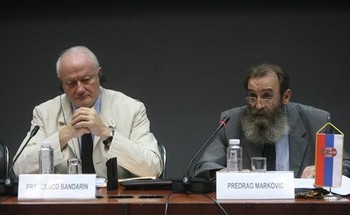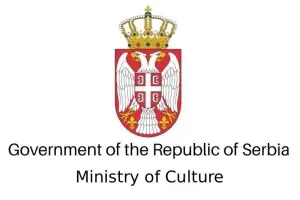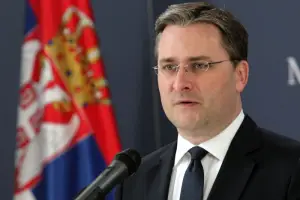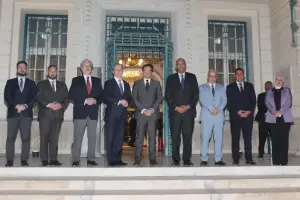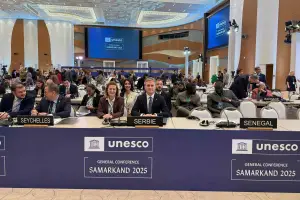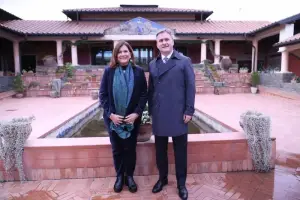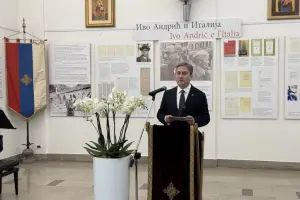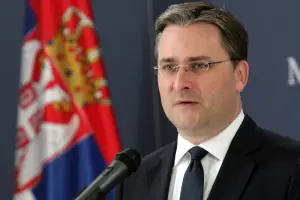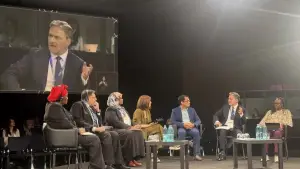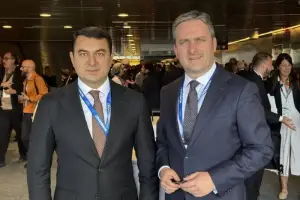Q:
A:
Boosting cooperation in cultural heritage in SEE
Belgrade,
10 June 2011
Minister of Culture, Media and Information Society Predrag Markovic and UNESCO Assistant Director-General for Culture Francesco Bandarin today opened the 7th ministerial conference of southeast Europe themed “Cultural Heritage – a Bridge towards a Shared Future.”
Markovic affirmed commitment to implementing Cetinje Action Plan, adopted last year at the 6th conference on cultural heritage, aimed at promoting common guidelines and priorities for improving regional cooperation in cultural heritage.
He underlined the importance of endorsing the “Cultural Heritage and Dialogue” initiative, proposed by the UNESCO Director General, as a new opportunity to advance international cooperation in south-eastern Europe through innovative approaches.
The Minister said it is important to support the activities whose goal is to protect and revive heritage in post-conflict areas, as well as to raise awareness of the cultural diversity of regions, encourage trust in reconciliation processes and support the development of local education, knowledge and skills.
Serbia has made major progress this year in preventing illegal trafficking in cultural heritage in south-eastern Europe, he recalled, adding that Serbia returned 1,800 archaeological items to Turkey which were found at Batrovci border crossing.
Markovic called upon other countries to intensify the enforcement of national laws and boost preventive measures to suppress illegal trade in cultural goods.
By ratifying the Convention on the Preservation of Immaterial Cultural Heritage, Serbia managed to create a system for preserving this type of heritage, as well as put forward important issues, the Minister observed.
Bandarin commended Serbia on its activities towards UNESCO missions, recalling that on 1 and 2 September a summit of heads of southeast European states will be held in Belgrade.
He noted that south-eastern Europe as a region has for the most part ratified UNESCO conventions and declarations and that annual ministerial conferences have become a leading platform for improving the protection of heritage, dialogue and sharing experience.
Bandarin said that seven years after the first ministerial conference in Mostar, the states are faced with new challenges and priorities which they must respond to, which is why they have to train and engage as many young people as possible in the process.
He announced that new UNESCO initiative about the link between heritage and development should be implemented as of next year.
Representatives from 11 countries signed a Belgrade Declaration at today’s conference which should provide guidelines for improving international cooperation in south-eastern Europe and promote cultural heritage as an instrument of sustainable development, dialogue and reconciliation.
Markovic stated that the Belgrade Declaration was signed by Serbia, Montenegro, Bosnia-Herzegovina, Bulgaria, Croatia, Italy, Macedonia, Moldova, Albania, Romania and Slovenia as an observing country.
He underlined that the Belgrade Declaration presents in detail the ways to preserve heritage, use it for the purpose of cultural economy and culture tourism and ways to use it to animate labour force through an exchange of experience, to the benefit of everyone in the region.
Of the eleven items in the declaration, seven are quite practical and envisage a series of action plans on cooperation and implementation of all that has been achieved to protect cultural heritage, Markovic added.
As part of the “Bridge towards a Shared Future” ministerial conference, Markovic today opened a “Culture Road – Danube Forts” exhibition in Kalemegdan Fort.
He underlined the importance of endorsing the “Cultural Heritage and Dialogue” initiative, proposed by the UNESCO Director General, as a new opportunity to advance international cooperation in south-eastern Europe through innovative approaches.
The Minister said it is important to support the activities whose goal is to protect and revive heritage in post-conflict areas, as well as to raise awareness of the cultural diversity of regions, encourage trust in reconciliation processes and support the development of local education, knowledge and skills.
Serbia has made major progress this year in preventing illegal trafficking in cultural heritage in south-eastern Europe, he recalled, adding that Serbia returned 1,800 archaeological items to Turkey which were found at Batrovci border crossing.
Markovic called upon other countries to intensify the enforcement of national laws and boost preventive measures to suppress illegal trade in cultural goods.
By ratifying the Convention on the Preservation of Immaterial Cultural Heritage, Serbia managed to create a system for preserving this type of heritage, as well as put forward important issues, the Minister observed.
Bandarin commended Serbia on its activities towards UNESCO missions, recalling that on 1 and 2 September a summit of heads of southeast European states will be held in Belgrade.
He noted that south-eastern Europe as a region has for the most part ratified UNESCO conventions and declarations and that annual ministerial conferences have become a leading platform for improving the protection of heritage, dialogue and sharing experience.
Bandarin said that seven years after the first ministerial conference in Mostar, the states are faced with new challenges and priorities which they must respond to, which is why they have to train and engage as many young people as possible in the process.
He announced that new UNESCO initiative about the link between heritage and development should be implemented as of next year.
Representatives from 11 countries signed a Belgrade Declaration at today’s conference which should provide guidelines for improving international cooperation in south-eastern Europe and promote cultural heritage as an instrument of sustainable development, dialogue and reconciliation.
Markovic stated that the Belgrade Declaration was signed by Serbia, Montenegro, Bosnia-Herzegovina, Bulgaria, Croatia, Italy, Macedonia, Moldova, Albania, Romania and Slovenia as an observing country.
He underlined that the Belgrade Declaration presents in detail the ways to preserve heritage, use it for the purpose of cultural economy and culture tourism and ways to use it to animate labour force through an exchange of experience, to the benefit of everyone in the region.
Of the eleven items in the declaration, seven are quite practical and envisage a series of action plans on cooperation and implementation of all that has been achieved to protect cultural heritage, Markovic added.
As part of the “Bridge towards a Shared Future” ministerial conference, Markovic today opened a “Culture Road – Danube Forts” exhibition in Kalemegdan Fort.

